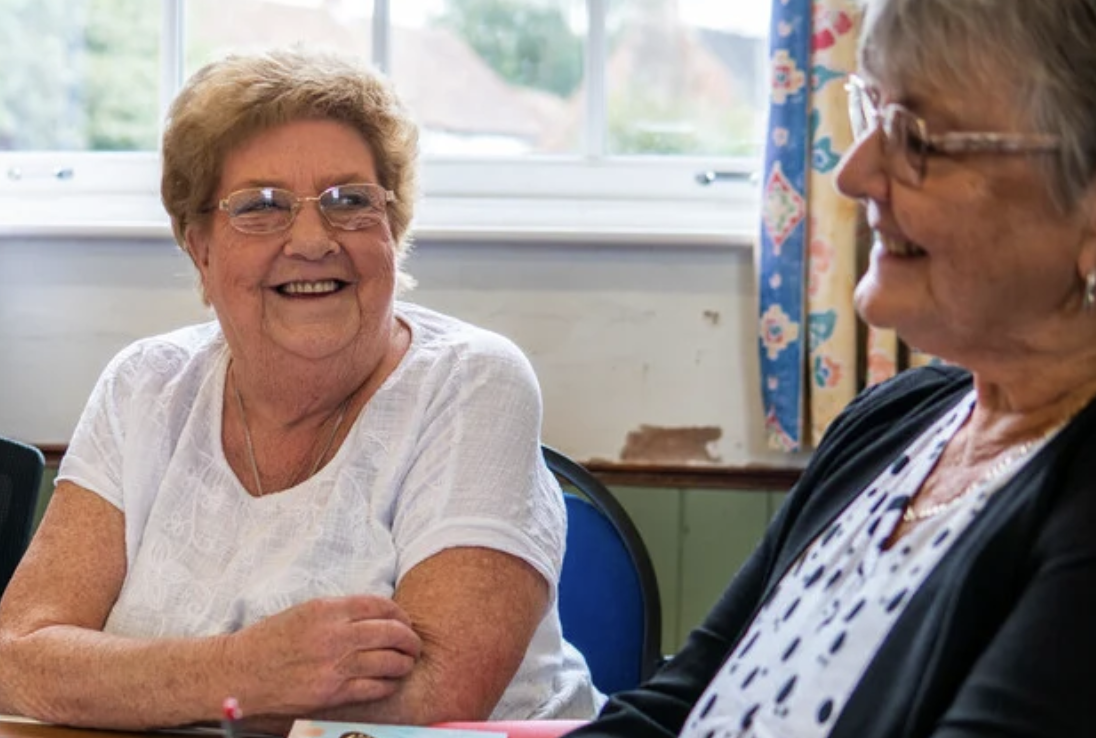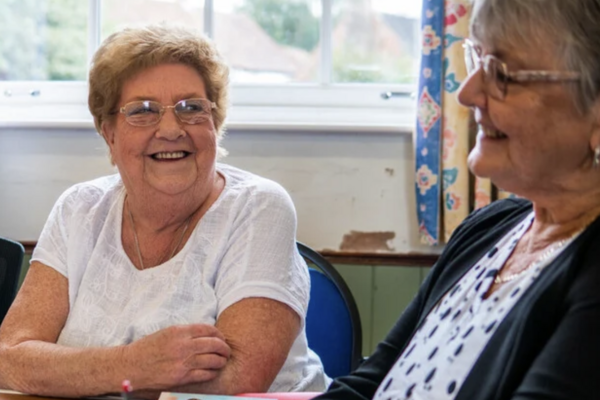
Each month, a small group of stroke-affected people meet in a backroom of the Zion Community Centre in Bishopsworth to chat, in their own time, about any topic.
It’s one of five groups run by Bristol After Stroke in Bristol and South Gloucestershire dedicated to those who have been left with aphasia after their stroke - and the aim of each is to encourage them to (literally) re-find their voice.
Aphasia is a common symptom of a stroke, leaving those affected with damage to the parts of the brain than process language. Around 350,000 people in the UK have the condition – including around 4,000 in Bristol and South Gloucestershire.
Talking to others with similar symptoms as yourself in a relaxed and unchallenging setting can be the release valve many need to find the confidence to practise speaking again… as well as share the emotions they are going through. It helps that everyone understands that, as one of the group, Pat, says: “Everyone’s stroke is different.”
“That’s right,” agrees Kathy, who had her stroke less than a year ago. “Yes, it’s easy to see if someone can’t walk or use their arm. But with aphasia, it’s not obvious until you talk, or try to talk. And then some people can treat you like an idiot.”
Sue nods in agreement, while Pat goes on to explain how aphasia has affected her: “Everything's ‘Covid’ for me,” she says. “I’m talking about something and instead of the right word coming out, I say, ‘Covid’. My daughter will look at me and say, ‘you don’t mean “Covid”,’ and she’ll give me the right word. And so it goes on.”
Sue’s aphasia has left her finding it difficult to say more than a few words… but she knows what she wants to say. The speech and language therapy team came up with a brilliant solution that means she is never totally “lost for words”: a small handbook filled with key words and images that allow her to point and show what she wants to say.
The conversation turns to the sort of activities people in the group enjoy doing, and here Sue comes into her own. Now in her mid-70s, and despite her stroke, she has remained fit and active… and has never had any qualms about trying out adventurous activities such as paragliding, ballooning and abseiling. One of her most memorable experiences, she tells us, was to go ballooning in Egypt, and she vividly recalls floating past the pyramids and over the Nile.
How long ago was her stroke? Sue tries to signal five years... but shows just four fingers: a common effect of stroke is to muddle one’s numbers.
Making sense of numbers
Numbers, says Kathy, are often a problem for her too… but in everyday situations, it’s words that most often escape her: “I always do a list for shopping and I write something on there, it might be apples, and I’ll look at the word and pick up something completely different. Sometimes it's not even a fruit!”
But, like the others in the group, she is working hard to make her life as normal as possible. “This was my first Christmas after my stroke,” she says, “and I gave myself a big pat on the back because I still managed cooking for everybody.
“I've got a lovely family, and they were all there and helping me: I wrote the list of the timings to get the food in and take out and had to get somebody to check it… there was no way that I could work out how long it would take for the beef to cook!
“I know I’m lucky to have a partner and a family, but sometimes it can be overwhelming, and I just want to close my eyes and walk away.”
Coming to terms with the “new you”
The conversation turns to how having a stroke means coming to terms with the “new you”.
"It's always big changes if you suddenly lose part of what you have always been good at or happy doing,” says Kathy.
Has Pat's experience been similar? "You're going to ask me when I had my stroke. I think it was about four years ago, but I can't really remember. That's how it is."
Adds Kathy: "I say to my husband, if anything happens to me, I do not want to be resuscitated... but please make sure I'm dressed! I think that's because I woke up with the stroke and wasn't dressed..."
The memory makes Kathy laugh - and the others too. "It's nice to see the funny side," she says. "I think that’s what's so nice about this group. It's just a small group, and everybody's got to know each other. So we can share things."
Regaining confidence
"You have to learn to live your life... but differently, adds Pat. "I don't go out as much as I used to. My confidence is shot. I don't go out at all unless I go with my daughter because I don't drive now. And unless she comes and takes me out, I just stay there.
“Well, I'm quite happy to stay there, you know, but I don't go out on my own. Sorry…. that was just me interrupting."
"No," everyone says back at once. "You're not interrupting."
Being treated as individuals and not as an illness or condition is important to all of the group. "I don't want to walk with a stick, but I have to,” says Kathy. "I don't want to be labelled, you know, or put into a parcel: ‘You've had a stroke.’ ‘You've had a heart attack.’ ‘You've got walking problems.’
"Stop doing that. Let us be ourselves. Just let us breathe and get on with it. If we need help, we can ask for it, can't we? Friends that I don’t see very often don't even know that I've had a stroke.
"It's always big changes if you suddenly lose part of what you have always been good at or happy doing,” Kathy adds.
How has the group helped?
The conversation turns to where people were brought up in Bristol, and how much life has changed since. Then it’s onto the Christmas presents people have received… and which ones will be “regifted”… before moving onto to grandchildren and pets. Sue gets out her smartphone to check when her lift home will be arriving, and the chat turns to how phones play a big part in their lives. “They’re our safety blanket when we go out,” says Kathy.
The three ladies have been coming to the group for just a year. At the beginning, Pat says she said very little… but has increasingly got involved in the conversations, while Sue has her say too – sometimes by using her handy book of words and pictures when needed.
Because the group feel relaxed talking to each other, and not embarrassed, there’s no anxiety about what they are saying… and that is key to the progress they are now making. “You feel you can say anything, you speak more… and better than you would normally because you aren’t worried about how it's going to come out,” says Kathy.
“It's the only place I feel absolutely normal.”
“Yes,” says Sue. “I feel normal.”
“It doesn't matter if I say something wrong,” adds Pat. “I feel normal here. I can relax.”
If you would like to be part of one of our “Communication Café” conversation groups, contact the Bristol After Stroke office on [email protected] or call 0117 964 7657.
Image: Centre for Ageing Better image library.





